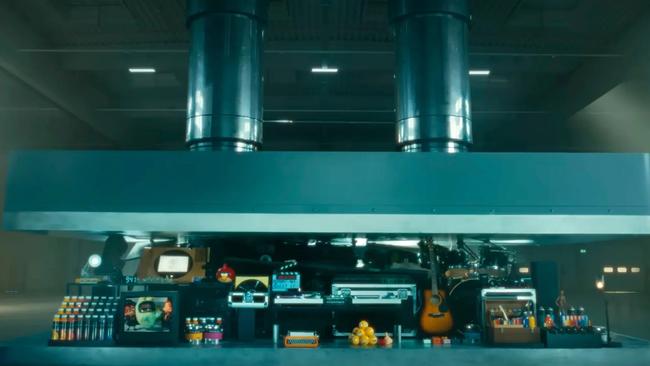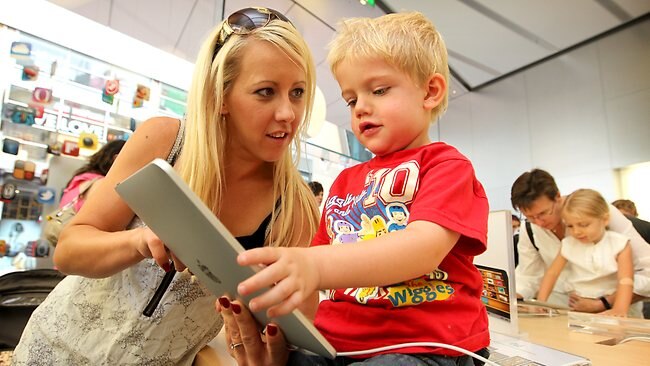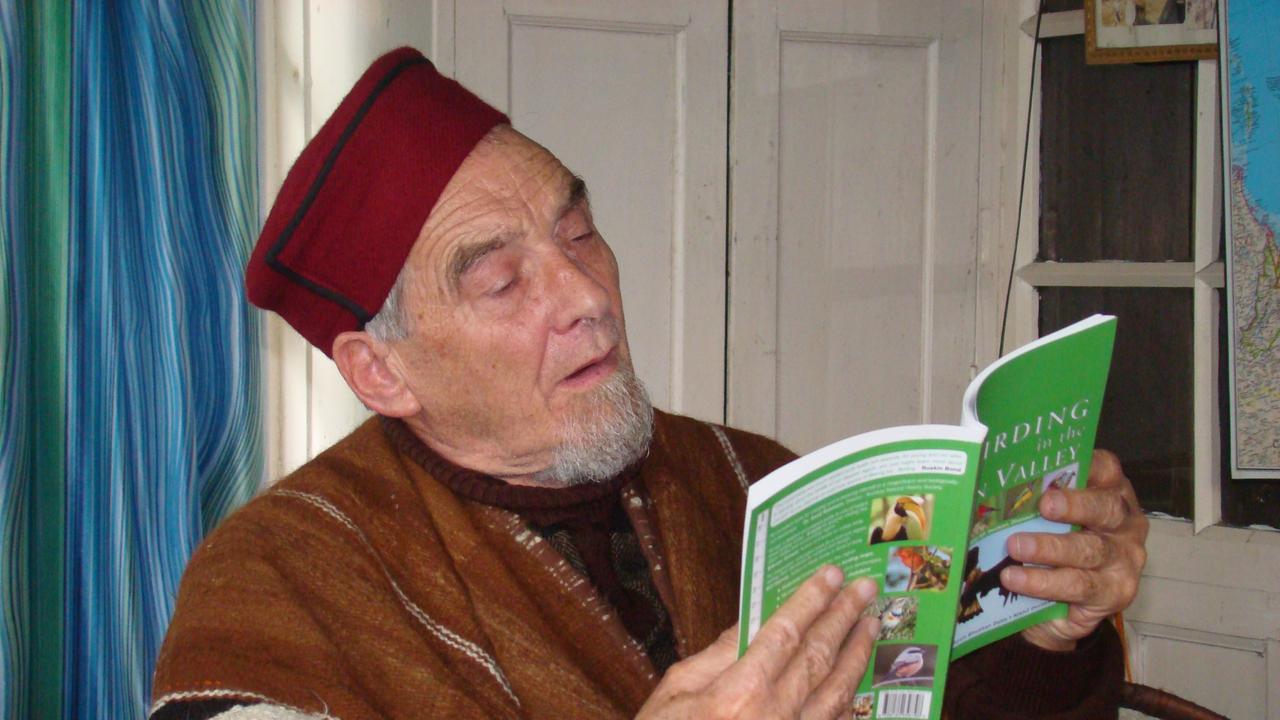We’re the masters here, not the machines

Within two days not only was the tech company forced to grovel apologetically but social media wits demonstrated that if you just run the whole advert backwards – ideally to the finale of Britten’s Young Person’s Guide to the Orchestra – horror becomes wonder.
Centuries of colourful artistic glory rise from the dull black slab, until all the written, imagined, sculpted, painted, tuneful achievements of humanity culminate in a triumphant golden trumpet. Humans fixed it, reminding Apple that its devices are not palaces or symphonies, just doorways.
The destruction of the human experience. Courtesy of Silicon Valley. https://t.co/273XB3CfnF
— Hugh Grant (@HackedOffHugh) May 8, 2024
The outrage has been extreme. Hugh Grant wailed about “the destruction of the human experience, courtesy of Silicon Valley”; others saw the crushing of humanity by a “monochrome, conformist, industrial world”. A Spectator writer compared the ad to Orwell’s vision of “a boot stamping on a human face, forever”.
The filmmaker Asif Kapadia called it: “The most honest metaphor for what tech companies do to the arts, to artists, musicians, creators, writers, filmmakers: squeeze them, use them, [don’t pay them] well, take everything, then say it’s all created by them.”
Meet the new iPad Pro: the thinnest product we’ve ever created, the most advanced display we’ve ever produced, with the incredible power of the M4 chip. Just imagine all the things it’ll be used to create. pic.twitter.com/6PeGXNoKgG
— Tim Cook (@tim_cook) May 7, 2024
Others excoriated a generation of “iPad kids”, sedated and ruined by screens. One said that on seeing an infant engrossed (probably in Peppa Pig) he wanted to snatch the device and stamp on it. They didn’t dare to question the parents: it’s easier to blame the Thing.
The protests portrayed the tablet computer as the fifth horse of the Apocalypse in a 13in aluminium shell. Yet all that was needed was to reverse the film and laugh in order to remind the world that these things are not prison cells but doors, offering routes and signposts towards every artistic, scientific and natural wonder.
The evil black slab might even collaborate: help to compose new music without the need to own a piano, or new buildings without a drawing board. It’s a vantage-point, not a black pit. We are in charge, not a roomful of marketing executives with not one civilised enough to cringe at a violin and piano being smashed. I notice that the company’s marketing division has issued mouth-watering job ads in its search for a “dynamic, highly motivated and creative communicator … able to work through ambiguity and multifunctional co-ordination”. Maybe they’ll add “sense of irony”.
The brief debacle and grovelling apology prompt wider thoughts about our fear of the digital revolution. Travel from the first flickering green home screens has been breathtakingly fast, a psychological shake-up. Even millennials remember the kudos of parents having the first clunky “car phone” in the neighbourhood, yet now raise digital-native infants who swipe their first screen with a rubber dummy still gripped in toothless gums.
Cameraphones only became common after 2010, yet the selfie is now considered an integral part of travel and cultural experience. Social media progressed from the novelty of email and text to a dozen braggart platforms, the virtual destruction of ministerial confidentiality, the idea that “influencer” is a career choice and the promise that intimacy begins by swiping right.
New apps make and lose fortunes; every year makes it harder to park or book a show without a smartphone, and easier to dismantle collaborative working in favour of keystrokes from a sofa. Or a far continent. And that’s before you even start deploring the explosion of hard porn, the disinformation of deepfake and the idle institutions that remain dependent on algorithms.
So we all have moments of hand-wringing Luddism, and properly worry about the mental and emotional vulnerability of children. Campaigns against smartphones and tablet-addiction for the youngest are rightly growing and social disapproval will weigh ever heavier. Also dawning is the political common sense that tech giants should not dodge the ancient responsibilities of publishers. It’s all overdue and will take time to settle. All industrial revolutions do, and here the process is both helped and hindered by the technology itself, making outrage easier.
The cheering phenomenon, as with the Apple ad, is the human instinct to try, judge and adapt any new tools. Shudder in iPad terror with Hugh Grant if you must or, like David Hockney, cheerfully use it as a new way to express flowering trees. Wince at disinformation but welcome having your reputable newspaper on a screen rather than a doormat. Flinch, like me in the 1990s, from the industrial concept of “word processing” (Help! My subclause slid sideways! Where’d it go?) But then pull yourself together, learn to use it, save paper. And if writing onscreen does make you glib, careless or verbose, then edit it and flinch at yourself instead. The computer didn’t do it, you did.
After a morning of falling down an internet rabbit hole of pointlessness, or an evening drunkenly buying something stupid, remember that it was you in charge all the time. You’re not a victim, admit your shame as if it was a wrong cream bun, grow up.
Better to rejoice than cower: glory in facetiming distant relatives, navigating strange towns by satellite, finding amusing acquaintances on Twitter/X and muting the fools. Tech is a utensil like any other, and I always honour the robustness of a sailing friend who heaved his engine overboard because “I worked more hours for it than it did for me”. Admittedly, we later had to row into Sneem in flat calm, but it did us good. No contrivance rules us; we do, with hand and brain and heart.
The Times






Sometimes the bubble of technology gets reassuringly punctured by human mockery. Take, for instance, the outcry about Apple’s new iPad advertisement. It shows a menacing black lid crushing musical instruments, sculptures, books, artists’ paints and lay-figures until all that is left is a black device boasting of its extreme thinness.